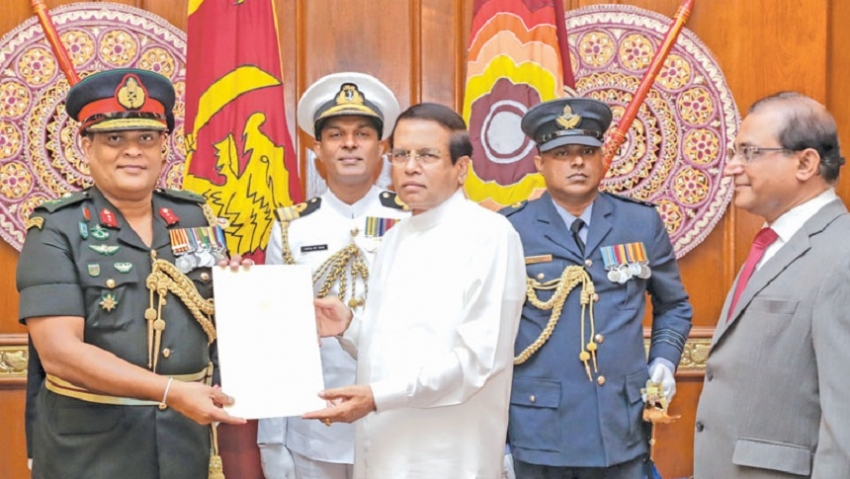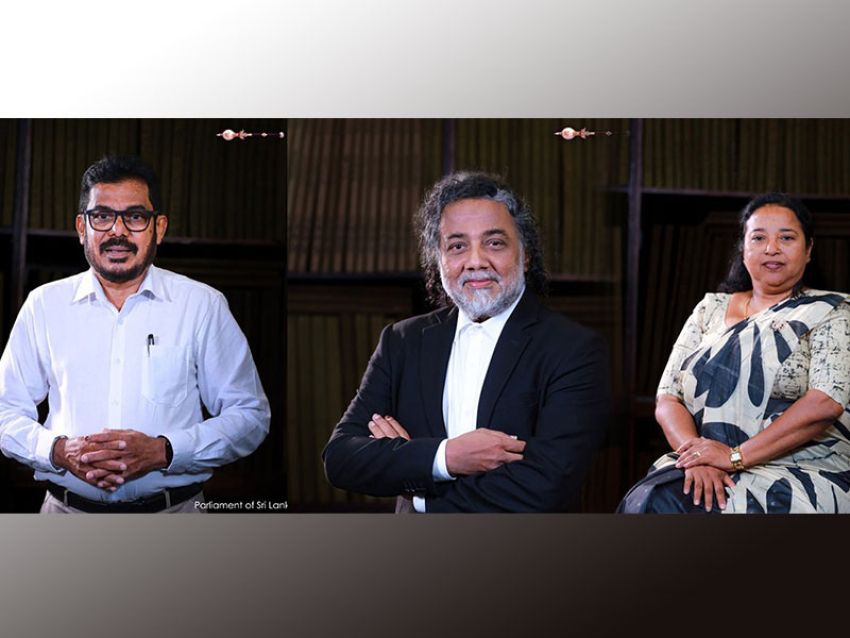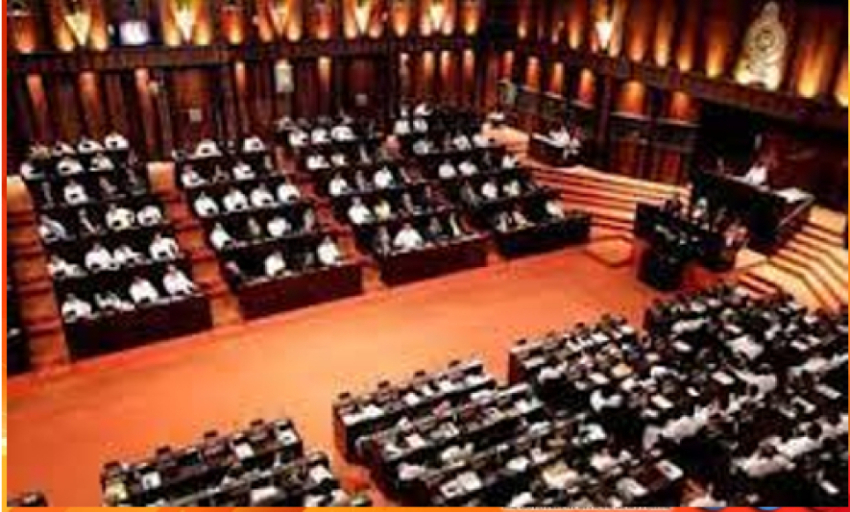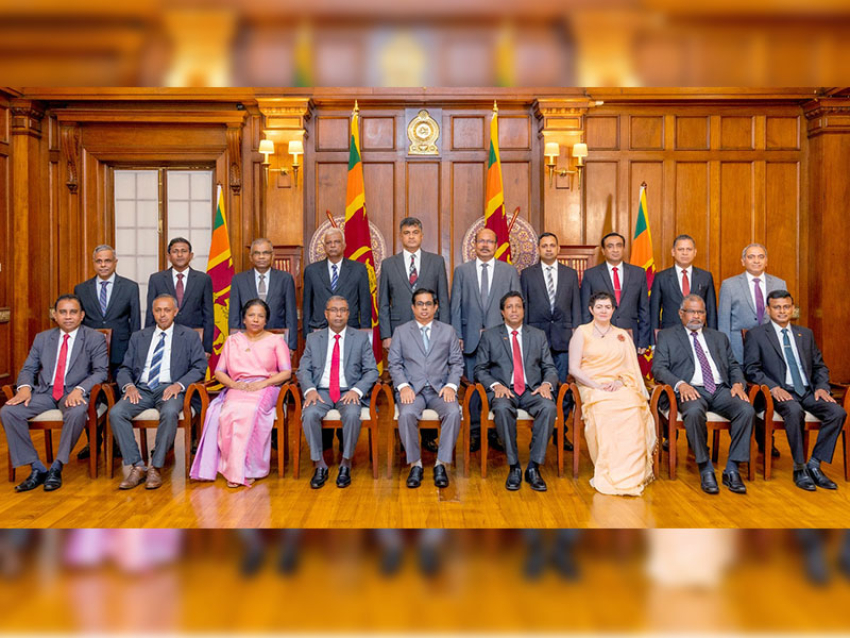Lt. General Shavendra Silva received the appointment letter as the 23rd Commander of the Sri Lanka Army from President Maithripala Sirisena on Monday. Secretary to the President Udaya R. Seneviratne is also in the picture. Picture by Sudath Silva
Sri Lankan government, in a rare display of its sovereign rights, has hit out at foreign criticism of the appointment of Lt. General Shavendra Silva as the new army commander. The Ministry of Foreign Affairs stated that attempts by foreign entities to influence government decisions are ‘unwarranted and unacceptable’. This was issued with reference to criticism levelled by Western countries about the appointment of Gen. Shavendra as army commander by President Maithripala Sirisena on August 19.
American Ambassador Alaina Teplitz was the first to cast a stone at this appointment. She said that the allegations of ‘gross human rights violations against him, documented by the United Nations and other organisations, are serious and credible.’ The diplomat seems to have forgotten or deliberately overlooked the fact that Gen. Shavendra Silva has not been charged or prosecuted in any court. It is unfortunate that she jumps to the conclusion that the ‘gross human rights violations by him are serious and credible’ when they are mere accusations by certain interested parties and front organisations of the dreaded terrorist outfit, the Liberation Tigers of Tamil Eelam (LTTE).
“This appointment undermines Sri Lanka’s international reputation and its commitments to promote justice and accountability, especially at a time when the need for reconciliation and social unity is paramount,” the US Embassy in Colombo said.
The US did not limit its ‘concern’ to mere words. Ambassador Teplitz urged early signing of the proposed agreement on US $ 480 million Millennium Challenge Corporation (MCC) grant. In a veiled threat, the US official in Washington said that Sri Lanka risks losing the US $ 480 million Millennium Challenge Corporation (MCC) grant if the government fails to sign the compact agreement within a month. The U.S. official said there would be “limits to what we can do as we develop a stronger military relationship with Sri Lanka if the army chief is a known human rights violator.”
New appointment
He suggested General Silva’s new appointment could also affect a $480 million grant through the MCC. “It will be one factor that will be looked at.”
Undeterred by these threats, President Sirisena has put on hold the MCC-Sri Lanka Compact agreement for six months. At the Cabinet meeting on Tuesday, he said the proposal needs further study. Although Prime Minister Ranil Wickremesinghe and Finance Minister Mangala Samaraweera wanted the MCC agreement signed immediately, the President emphasized the need for further study because of the diverse views expressed by political and economic experts.
Following on the US footsteps, Canada too stated that there are credible allegations of gross human rights violations against Lieutenant-General Shavendra Silva who was appointed as the Commander of the Sri Lankan Army. The Canadian High Commission in Colombo said that Canada is deeply concerned by Lt. Gen Silva’s appointment as Army Commander in Sri Lanka despite credible allegations of gross human rights violations against him during the war. “His appointment undermines reconciliation and accountability efforts,” the High Commission said.
The statements from Washington and Ottawa were a precursor for European countries where pro-LTTE Tamil diaspora has considerable influence. These are the same countries that made every possible attempt to stop the Sri Lankan forces from wiping out ruthless Tamil terrorists in 2009.
UN Human Rights chief Michelle Bachelet also said she was “deeply troubled” by Gen. Silva’s appointment. She too made a veiled threat by adding that Sri Lanka’s move could impact its ability to contribute to U.N. peacekeeping missions.
Both the US and the UNHRC seem to have forgotten that the US decided to quit UNHRC calling it a partial organisation. Washington also refused to fund UN organisations.
The European Union delegation in Sri Lanka issued a statement endorsing Bachelet’s comments. It said Gen. Shavender Silva’s promotion “calls into question Sri Lanka’s commitments to the U.N. Human Rights Council, as recently as March 2019, to ensure justice and accountability. It also undermines Sri Lanka’s efforts towards national reconciliation and sends a worrying message to victims and survivors of the war.” The statement was issued in agreement with the embassies of Germany, Italy, Netherlands, Norway, Switzerland and the United Kingdom.
Explaining the actual position, the Foreign Ministry called the appointment of Lieutenant General Shavendra Silva as commander of the Sri Lanka army a “sovereign decision” by President Maithripala Sirisena. “Foreign entities trying to influence the decisions and internal administrative processes of public service promotions in Sri Lanka are unwarranted and unacceptable,” the Ministry said in its statement. It added that the international condemnations were “based on allegations”.“Articulating a position of concern... is regrettable and contrary to the principles of natural justice,” the Ministry said.
Civil war in the USA
Megalopolis and Western Development Patali Champika Ranawaka took the battle to US soil by stating that in the way General Ulysses S. Grant who led the government forces against the separatist civil war in the USA became important to Americans, Lieutenant General Shavendra Silva is also important to the Sri Lankan Government. He pointed out that the President has the power to appoint the Country’s Commander of the Army. He recalled that in the USA during the time of President Lincoln’s rule, a separatist’s Civil War broke out and General Ulysses S Grant undertook this great task to defeat the separatists and later had to face war crime charges. In similar circumstances, Gen Shavendra Silva led a battalion of armed forces to defeat terrorists and safeguard the sovereignty of Sri Lanka.
In the past too, Sri Lanka experienced blatant attempts by foreign powers to intimidate and interfere in internal affairs of this country. During the J R Jayewardene regime, Indian High Commissioner Jyotinder Nath Dixit acted as a Viceroy trying to dictate terms and most of the time he succeeded in doing so. The result was the one-sided Indo-Sri Lanka Agreement of July 29, 1987, and the 13th Amendment to the Constitution that followed.
In 1989, then British High Commissioner David Gladstone tried to unduly interfere in the election process of Sri Lanka by complaining alleged malpractices at an election booth in the South. Infuriated President Ranasinghe Premadasa immediately served Gladstone with ‘persona-non-grata’ and expelled him from the country.
In April 2009, at the height of the war against LTTE, British Foreign Minister David Miliband and his French counterpart Bernard Kushner flew to Sri Lanka and urged President Mahinda Rajapaksa to stop the war, but the latter showed them the door.
The quick response by the Ministry of Foreign Affairs to remind the interfering agents to respect the sovereign rights of Sri Lanka is a highly appreciative step. Although, as President Sirisena often says, we have friendship towards all, it is not a license for undue interference in internal affairs by foreign countries and their envoys. Colombo firmly believes that the Viceroy dictates have ended 70 years ago when the country became independent.




















